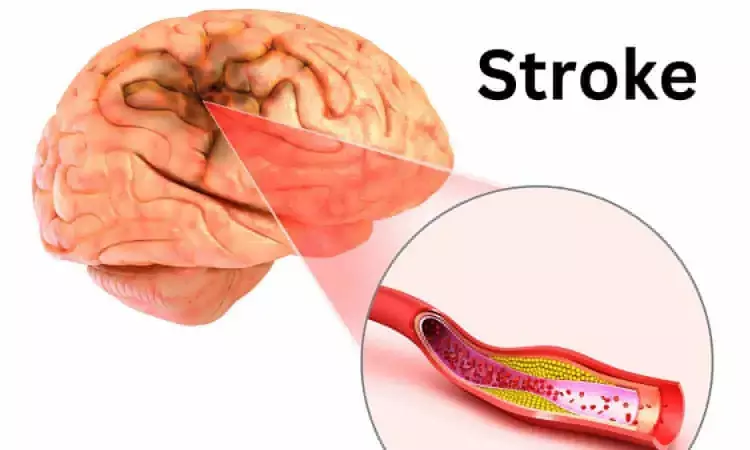- Home
- Medical news & Guidelines
- Anesthesiology
- Cardiology and CTVS
- Critical Care
- Dentistry
- Dermatology
- Diabetes and Endocrinology
- ENT
- Gastroenterology
- Medicine
- Nephrology
- Neurology
- Obstretics-Gynaecology
- Oncology
- Ophthalmology
- Orthopaedics
- Pediatrics-Neonatology
- Psychiatry
- Pulmonology
- Radiology
- Surgery
- Urology
- Laboratory Medicine
- Diet
- Nursing
- Paramedical
- Physiotherapy
- Health news
- Fact Check
- Bone Health Fact Check
- Brain Health Fact Check
- Cancer Related Fact Check
- Child Care Fact Check
- Dental and oral health fact check
- Diabetes and metabolic health fact check
- Diet and Nutrition Fact Check
- Eye and ENT Care Fact Check
- Fitness fact check
- Gut health fact check
- Heart health fact check
- Kidney health fact check
- Medical education fact check
- Men's health fact check
- Respiratory fact check
- Skin and hair care fact check
- Vaccine and Immunization fact check
- Women's health fact check
- AYUSH
- State News
- Andaman and Nicobar Islands
- Andhra Pradesh
- Arunachal Pradesh
- Assam
- Bihar
- Chandigarh
- Chattisgarh
- Dadra and Nagar Haveli
- Daman and Diu
- Delhi
- Goa
- Gujarat
- Haryana
- Himachal Pradesh
- Jammu & Kashmir
- Jharkhand
- Karnataka
- Kerala
- Ladakh
- Lakshadweep
- Madhya Pradesh
- Maharashtra
- Manipur
- Meghalaya
- Mizoram
- Nagaland
- Odisha
- Puducherry
- Punjab
- Rajasthan
- Sikkim
- Tamil Nadu
- Telangana
- Tripura
- Uttar Pradesh
- Uttrakhand
- West Bengal
- Medical Education
- Industry
Anticoagulants Not Enough? Stroke Risk Remains High in Atrial Fibrillation Patients: Study Finds

Ireland: Atrial fibrillation (AF) significantly increases the risk of stroke, and while anticoagulation therapy is the current standard to reduce this risk, a new systematic review and meta-analysis published in JAMA Neurology highlights that patients continue to face a substantial residual risk of recurrent stroke despite treatment. The study, led by John J. McCabe and colleagues from the Health Research Board Stroke Clinical Trials Network Ireland, analyzed data from over 78,000 patients to better understand the extent of stroke recurrence in this high-risk population.
The researchers reviewed 23 studies involving 78,733 individuals with a history of ischemic stroke and AF, encompassing more than 140,000 person-years of follow-up.
The key findings include the following:
- The annual risk of recurrent ischemic stroke in patients with atrial fibrillation (AF) is about 3.75%, despite around 92% of patients being on oral anticoagulants (OAC).
- The risk of recurrent stroke was twice as high in noninterventional observational studies (4.2% per year) compared to randomized clinical trials (2.26% per year).
- The difference in recurrence rates may be due to variations in patient management and study conditions.
- The combined risk for any recurrent stroke, including ischemic stroke and intracerebral hemorrhage (ICH), was approximately 4.88% per year.
- The rate of intracerebral hemorrhage alone was relatively low, at 0.58% annually.
- Patients who experienced a stroke despite being on anticoagulation had a higher risk, with a 7.2% annual risk of recurrent ischemic stroke.
- The same group faced an 8.96% yearly risk of any recurrent stroke, highlighting the difficulty in preventing stroke recurrence even with current therapies.
The study’s findings suggest that nearly one in six patients with AF who survive an initial stroke will experience another ischemic stroke within five years, despite receiving modern secondary prevention therapies. This highlights a critical unmet need in stroke care, emphasizing that anticoagulation alone is insufficient to fully protect this vulnerable group.
The authors point out that this persistent risk necessitates urgent research to uncover the biological mechanisms that drive stroke recurrence in AF patients. They also call for the development of better risk prediction tools to identify those at greatest risk of recurrent stroke, enabling more personalized prevention strategies. Moreover, the study underscores the importance of clinical trials to explore new and emerging treatments that could further reduce the risk of recurrent stroke and associated complications.
“While anticoagulants continue to be a cornerstone in preventing stroke among patients with atrial fibrillation, our comprehensive review highlights a significant residual risk that calls for ongoing innovation and focused clinical attention,” the authors stated. They added, “Future advancements in understanding and managing this risk have the potential to greatly improve patient outcomes and reduce the burden of recurrent stroke in this population.”
Reference:
McCabe JJ, Cheung Y, Foley M, et al. Residual Risk of Recurrent Stroke Despite Anticoagulation in Patients With Atrial Fibrillation: A Systematic Review and Meta-Analysis. JAMA Neurol. Published online May 21, 2025. doi:10.1001/jamaneurol.2025.1337
Dr Kamal Kant Kohli-MBBS, DTCD- a chest specialist with more than 30 years of practice and a flair for writing clinical articles, Dr Kamal Kant Kohli joined Medical Dialogues as a Chief Editor of Medical News. Besides writing articles, as an editor, he proofreads and verifies all the medical content published on Medical Dialogues including those coming from journals, studies,medical conferences,guidelines etc. Email: drkohli@medicaldialogues.in. Contact no. 011-43720751


